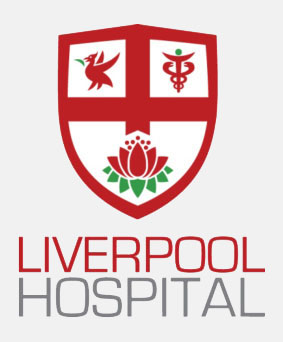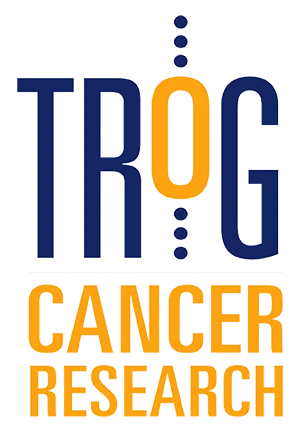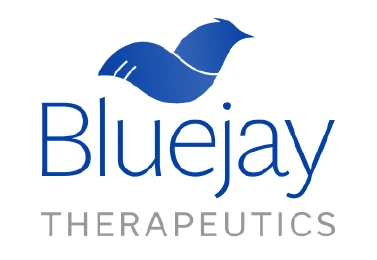Clinical Trials Conducted in the Gastroenterology and Liver Department
Within our clinical service, there are occasions where participation in a clinical trial is a good choice for patients, either to access therapies not otherwise available for their condition or because it is unclear which of the available choices is the optimal one. Under the governance of South Western Sydney Local Health District Ethics Committee, participation in clinical trials may be offered to our patients. Each year clinical trials will vary, so keep an eye out on this page for any new trials as they become available.
When you attend our clinical service, you may be invited to consider information about clinical trials available for your condition. Clinical trials will remain a small but important part of our work, ensuring patients can access cutting edge new therapies and that as clinicians we are always questioning existing practices and alert to new treatments that may improve patient outcome.
If you would like to learn more about any of the clinical trials below, please either:
1. Speak
to your doctor
2. Call
+61 477 303 652
using the subject line “Clinical Trials” and the name of the study you are interested in, and we will be in touch!
-
Liver Cancer
PHASE 2
The SOCRATES HCC Study - A randomised controlled trial of Standard Of Care versus RadioAblaTion in Early Stage HepatoCellular Carcinoma
ACTRN12624000808549
Have you been recommended to have TACE or SABR for your liver cancer treatment?
Both TACE and SABR are frequently used, effective treatments for liver cancer. We are conducting a study to collect more data to compare the two treatments. Would you be willing to enrol in a randomised study to have either treatment ?The SOCRATES HCC study is testing whether a precise type of radiation therapy called SABR (Stereotactic Ablative Body Radiotherapy) works better than current standard treatments for people with early-stage liver cancer. These standard treatments may involve heating the tumour or injecting chemotherapy or radioactive particles into its blood supply. People aged 18 and over with a single, small liver tumour (5 cm or less) who haven’t had treatment before may be eligible. Participants are randomly placed into two groups: one will get SABR in a few short outpatient visits, and the other will receive standard treatments based on their cancer’s size and location. All participants will be followed up regularly for several years with scans, blood tests, and health checks.
-
Liver Cancer
PHASE 2
DEFINERx050 - A Multicentre, Randomized, Open-Label Study of Atezolizumab (Anti-PD-L1 Antibody) Plus Bevacizumab (Anti-VEGF Antibody) as Neo-Adjuvant Therapy Versus Active Surveillance in Hepatocellular Carcinoma Patients with high Onco-Fetal Characteristics Before Surgical Resection
ACTRN12624001345572p
Have you been newly diagnosed with Liver cancer ?
Has your medical team recommended surgical resection as a treatment option for your HCC?This study is testing whether giving two immunotherapy drugs, atezolizumab (Tecentriq) and bevacizumab (Avastin), before liver surgery can help people with liver cancer do better than surgery alone.
You can join if you’re 18 or older, have just been diagnosed with liver cancer, and your doctor recommends surgery to remove the tumour.
Participants will be randomly placed into two groups: one will get the immunotherapy first, then surgery, and the other will have surgery right away. Both groups will have regular check-ups with scans and blood tests every 3 months for 3 years.
The goal is to see if this treatment approach can lower the chance of the cancer coming back.MEDICATION INFO
Infusion
17 cycles -
Liver Cancer
DEFINERx150 - Circulating biomarkers of response in advanced Hepatocellular Carcinoma
Have you been diagnosed with liver cancer and recommended to start immunotherapy treatment with atezolizumab plus bevacizumab?
Are you willing to provide blood samples during your treatment and have available tumor tissue samples for testing?This study is about improving treatment for advanced liver cancer (hepatocellular cancer or HCC). Right now, a type of treatment called immunotherapy works for only 20-40% of patients. Researchers have found a special environment in the tumor that might help predict who will respond well to immunotherapy. The study will collect tissue and blood samples from patients to look for specific markers that can predict treatment success. Patients with advanced liver cancer who are starting immunotherapy will be followed for two years to see how well the treatment works. The goal is to find better ways to decide who will benefit most from immunotherapy and improve outcomes for future patients.
-
Metabolic / Fatty Liver Disease
PHASE 3
LIVERAGE 1404-0044 - A randomised, double-blind, placebo-controlled, multicentre, Phase III trial evaluating long-term efficacy and safety of survodutide weekly injections in adult participants with noncirrhotic non-alcoholic steatohepatitis/metabolic associated steatohepatitis (NASH/MASH) and (F2) - (F3) stage of liver fibrosis
NCT06632444
Have you been diagnosed with “fatty liver” disease - also called Metabolic dysfunction-associated steatohepatitis (MASH)?
Are you interested in therapies that might contribute to weight loss?
Are you open to having weekly injections as part of this study?
Are you open to having a liver biopsy as part of this study?This study is for adults with a liver condition called MASH (formerly known as NASH) and moderate to advanced liver scarring (fibrosis). It aims to find out if a new medication called survodutide can improve liver health. Participants will be randomly assigned to receive either survodutide or a placebo (a dummy treatment) once a week as an injection under the skin. Everyone in the study also gets support to eat healthier and exercise more. The study runs for up to 7 years, with regular health checks, scans, blood tests, and some liver biopsies. The goal is to see if survodutide is safe and helps improve liver function better than no treatment.
MEDICATION INFO
Subcutaneous Injection
Once Weekly -
Metabolic / Fatty Liver Disease
PHASE 3
AKERO 105 - A Phase 3, Randomized, Double-Blind, Placebo-Controlled Study Evaluating the Safety and Efficacy of Efruxifermin in Subjects With Non-Cirrhotic Nonalcoholic Steatohepatitis (NASH)/Metabolic Dysfunction-Associated Steatohepatitis (MASH) and Fibrosis
NCT06215716
Have you been diagnosed with “fatty liver” disease - also called Metabolic dysfunction-associated steatohepatitis (MASH)?
Are you open to having weekly injections as part of this study?
Are you open to having a liver biopsy as part of this study?This study is testing a new medicine called efruxifermin (EFX) to see if it helps people with non-cirrhotic NASH or MASH (types of liver disease caused by fat build-up and inflammation) who also have moderate to advanced liver scarring (fibrosis stage 2 or 3). It will involve about 1,650 participants at multiple study sites. Participants will be randomly placed into two groups — one will receive the study drug and the other a placebo (a dummy drug with no active ingredient). The study is double-blinded, meaning neither the participants nor the doctors will know who is receiving which treatment. The goal is to find out if EFX is safe and effective at treating liver disease before it becomes cirrhosis (severe scarring).
MEDICATION INFO
Subcutaneous Injection
Once Weekly -
Metabolic / Fatty Liver Disease
PHASE 3
AKERO 106 - A Phase 3, Randomized, Double-Blind, Placebo-Controlled Study Evaluating the Safety and Efficacy of Efruxifermin in Subjects With Compensated Cirrohosis Due to NASH/MASH
NCT06528314
Have you been diagnosed with liver cirrhosis due to “fatty liver” disease/ Metabolic dysfunction-associated steatohepatitis (MASH)?
Are you open to having weekly injections as part of this study?
Are you open to having a liver biopsy as part of this study?This study is testing a new medication called efruxifermin (EFX) in people who have early-stage (compensated) liver scarring caused by NASH or MASH, two types of fatty liver disease. Participants will be randomly assigned to receive either EFX or a placebo (a look-alike with no active medicine), and neither the participants nor the doctors will know who is getting which. The goal is to see if EFX is safe and can help slow or improve liver disease in people with compensated cirrhosis due to NASH/MASH.
MEDICATION INFO
Subcutaneous Injection
Once Weekly -
Metabolic / Fatty Liver Disease
PHASE 3
LIVERAGE 1404-0064 - A Phase III double-blind, randomised, placebo-controlled trial to evaluate liver-related clinical outcomes and safety of once weekly injected survodutide in participants with compensated nonalcoholic steatohepatitis/metabolic dysfunction associated steatohepatitis (NASH/MASH) cirrhosis
NCT06632457
Have you been diagnosed with liver cirrhosis due to “fatty liver” disease/ Metabolic dysfunction-associated steatohepatitis (MASH)?
Are you interested in therapies that might contribute to weight loss?
Are you open to having weekly injections as part of this study?This study is for adults with a liver condition called NASH or MASH and a BMI of at least 27 (or 25 if Asian). It will test whether a new medicine called survodutide can help improve liver health. Participants will be randomly assigned to receive either survodutide or a placebo (a dummy treatment) as a weekly injection, along with regular advice on diet and exercise. The study lasts up to 4.5 years, with regular check-ups, blood tests, scans, and questionnaires to monitor liver function, weight, and overall health. The goal is to see if survodutide helps people with NASH/MASH more than the placebo.
MEDICATION INFO
Subcutaneous Injection
Once Weekly -
Hepatitis D
PHASE 2B / 3
AZURE-1 - A Global, Randomized, Open-label, Multicenter, Phase 2b/3 Trial Evaluating BJT-778 (brelovitug) vs Delayed Treatment for the Treatment of Chronic Hepatitis Delta Infection
NCT06907290
Do you have chronic hepatitis delta infection confirmed by a doctor?
Are you currently taking, or willing to take, medication for hepatitis B (TDF, TAF, or ETV)?
Are you 18 years or older and not pregnant or breastfeeding?
Are you able and willing to attend regular study visits and follow all study procedures?This trial is testing a new drug, Brelovitug (BJT-778), for people with chronic hepatitis delta, a serious liver infection. Participants will receive either weekly or monthly injections, or delayed treatment for 24 weeks before starting the drug. The study aims to see if Brelovitug reduces the amount of virus, improves liver health, and is safe.
MEDICATION INFO
Subcutaneous Injection
Either Weekly or Monthly
If you have any enquiries or would like to make an appointment, please email:
Gastroenterology and Liver
Clinic E (123), Level 1
Liverpool Hospital
Corner of Elizabeth and Goulburn Streets
LIVERPOOL NSW 2170
02 8738 4085
FAX: 02 8738 7960
Our phones cannot always be answered, so the best way to contact us is via email or fax
8.30am - 4.00pm
Monday to Friday







